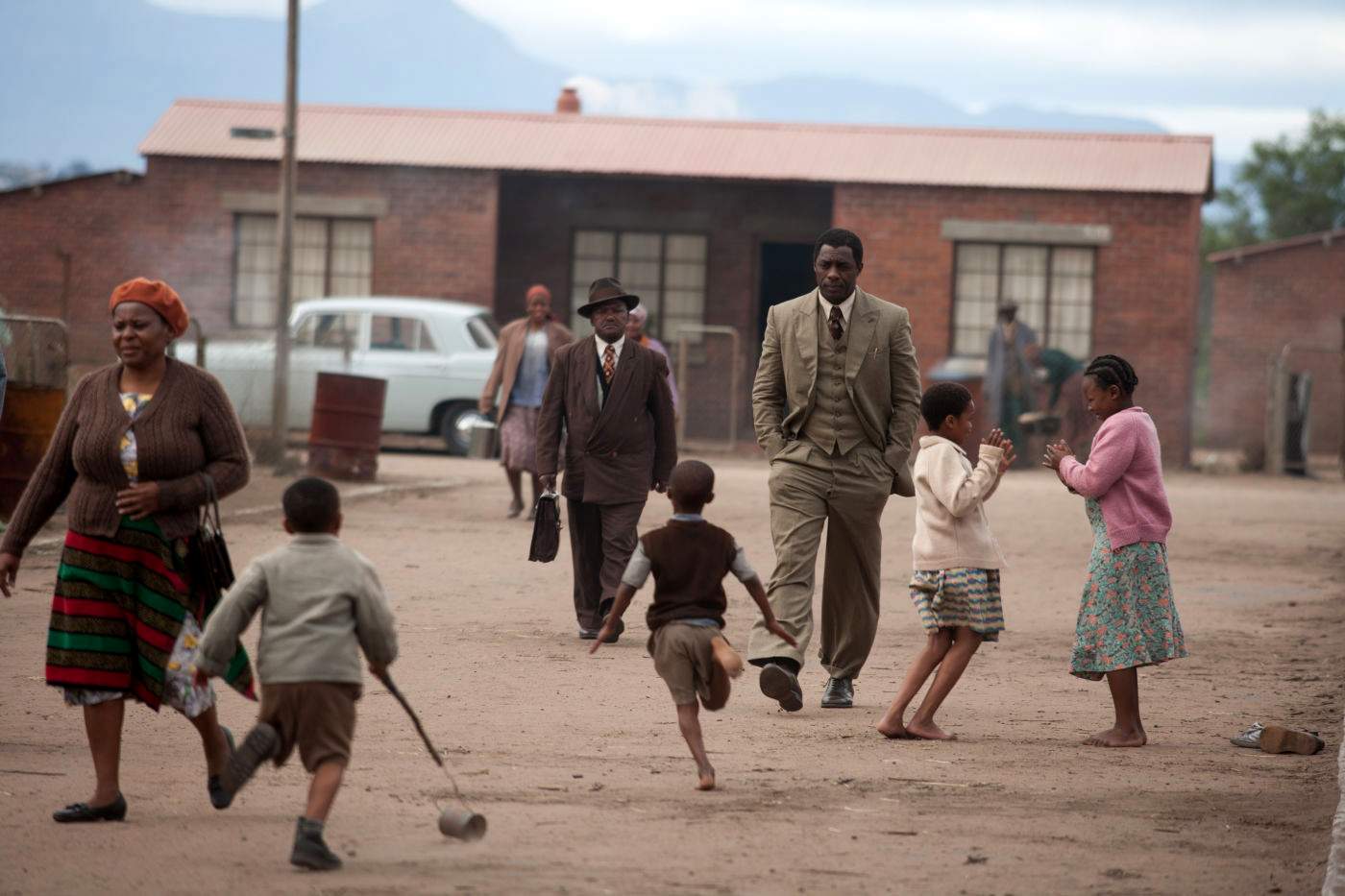Mandela: Long Walk to Freedom
Condensing the life story of Nelson Mandela into a single film proves a too daunting task.
Overview
Condensing the life story of Nelson Mandela into a single film is a daunting task. This is not just because the man went from being an agitator to a political prisoner to the first black president of South Africa (spoilers), but because the emotional connection the entire world has with one of the most significant anti-racism warriors is not a light one for a film to take on. Mandela: Long Walk to Freedom is not exactly up to the task.
If this film is undone by anything, it's the biopic form itself. No film exists in a vacuum, and it's impossible to ignore that this biopic possesses basically the same narrative structure as most other activist/musician/politician/author biopics: begins, falls, rises. Which was the tagline to the Dark Knight trilogy, now that I think about it.
The problem isn't that the film is reductive in its portrayal of Mandela's life — especially as it at least appears willing to show him at both his best and his worst — but that it is too reverential of its form. Director Justin Chadwick, best known for 2008's The Other Boleyn Girl, does not take any strong stylistic liberties with Mandela's story, but given the film feels frustratingly familiar, I rather wish he had.
Idris Elba is very good in the role, and looks far more like Mandela than you might initially think. Oddly, he seems more comfortable playing the aged Mandela than the youthful one; the film itself echoes this feeling, significantly more at ease with Mandela the Forgiving Leader than Mandela the Righteous Terrorist.
Winnie Mandela, who has, in many quarters, been retroactively painted as a villain in Nelson Mandela's life story, is given a much fairer shake here, in what is one of the film's better decisions. Although Winnie is depicted in the same generic strokes as everything else in the film, it at least acknowledges her best and her worst aspects, and that fairness is Mandela's saving grace. It doesn't hurt that Winnie is played by Naomie Harris, one of the UK's best actors, although her natural charisma is not given much room to shine through.
The best thing that can be said of Mandela: Long Walk to Freedom is that it refuses to play in the same sandpit that the media did following the man's death last year, refusing to engage exclusively with the picture of Mandela as the genial statesman. The film is prepared to explore the elements of Mandela's past that would see him labelled a terrorist, and even if these are dealt with only perfunctorily, this sandpapering comes across as a result of the storytelling form rather than a politicised motivation.
The worst thing that can be said of the film is that it is only superficially illuminating, briefly informative; the drama is only mildly engaging, the imprisonment distantly horrific. It insists upon keeping us at an arm's length for its not inconsiderable running time.
Like a sign language-faking impostor at a funeral, the moves all look right to the untrained eye, but are, ultimately, devoid of all meaning.
https://youtube.com/watch?v=hmm-aazQQKA





